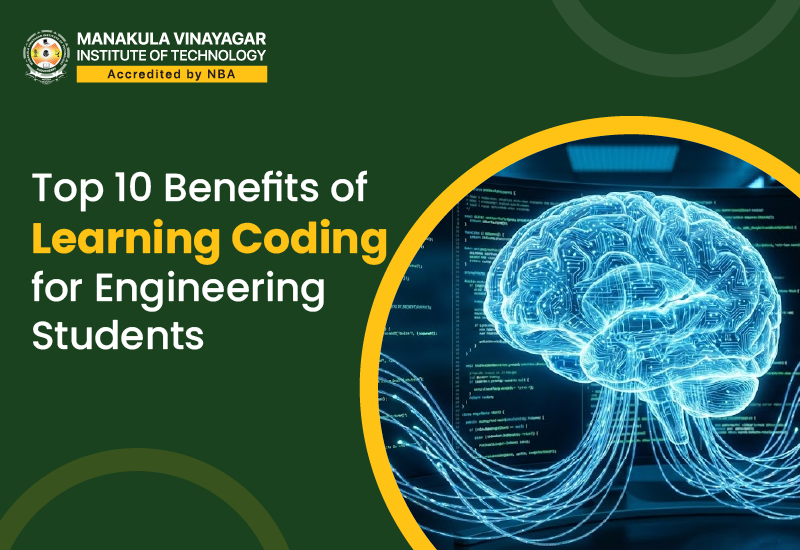What is BTech?
Bachelor of Technology (BTech) is an undergraduate academic degree awarded in the field of engineering and technology. Typically spanning four years, this program focuses on providing students with a robust understanding of engineering principles, technical skills, and practical applications.
BTech is offered in various specialisations, including Computer Science, Mechanical Engineering, Civil Engineering, Electronics, and Information Technology, among others.
The curriculum is designed to blend theoretical knowledge with practical experience, equipping students with the necessary skills to tackle live engineering challenges. Courses often include a mix of lectures, laboratory work, projects, and internships, allowing students to gain practical exposure in their chosen field.
In India, BTech programs are primarily offered by engineering colleges and universities, with admission typically based on entrance exams like the Joint Entrance Examination (JEE) and state-level assessments. The degree is recognised globally, making it a valuable qualification for aspiring engineers.
Also Check – MVIT College and Placement Highlights
Why Choose a BTech Course?
A BTech course equips students with technical knowledge, practical experience, and problem solving abilities that are essential. India is home to thousands of engineering colleges offering diverse specialisations, many of which are in high demand globally. A chosen BTech degree can lead to careers in top MNCs, public sector units, R&D firms, or even entrepreneurship.
Top BTech Courses in India (2025 Edition)
Below is a detailed look at the Top BTech Courses available in India, covering curriculum insights, career paths, and industry demand.
1. B.Tech in Computer Science and Engineering (CSE)
With the rise of the digital economy, CSE is one of the most in-demand engineering streams.
Key Subjects:
- Data Structures and Algorithms
- Computer Networks
- Operating Systems
- Machine Learning
- Web & Mobile App Development
Career Scope:
Software Developer, Data Analyst, Machine Learning Engineer, Cybersecurity Expert, IT Consultant.
Industries Hiring:
Tech firms (Google, Infosys, TCS), Startups, Financial institutions and Healthcare IT.
2. BTech in Artificial Intelligence and Machine Learning (AI & ML)
AI and ML are driving automation, predictive analytics, and smart technologies across industries.
Key Subjects:
- Neural Networks
- Deep Learning
- Natural Language Processing
- Data Science
- AI Ethics
Career Scope:
AI Engineer, Data Scientist, NLP Researcher, Business Intelligence Analyst.
Industries Hiring:
Tech giants, Robotics firms, Healthcare analytics, FinTech, EdTech.
3. B.Tech in Mechanical Engineering
It forms the centre of the industrial world, from automotive to manufacturing.
Key Subjects:
- Thermodynamics
- Fluid Mechanics
- CAD/CAM
- Robotics
- Mechatronics
Career Scope:
Design Engineer, Production Engineer, Aerospace Engineer, Maintenance Engineer.
Industries Hiring:
Automobile, Aviation, Oil & Gas, Heavy Machinery, Renewable Energy.
4. B.Tech in Electrical and Electronics Engineering (EEE)
Electricity and electronics form the basis of most industrial and consumer technologies.
Key Subjects:
- Power Systems
- Control Engineering
- Signal Processing
- Embedded Systems
- Microcontrollers
Career Scope:
Electrical Engineer, Control Systems Engineer, Instrumentation Specialist, Energy Analyst.
Industries Hiring:
Power generation, IoT startups, Electronics manufacturers, Railways, Defence.
5. B.Tech in Electronics and Communication Engineering (ECE)
Combines hardware and software knowledge applicable in telecom, defence, and automation.
Key Subjects:
- Analogue and Digital Electronics
- Communication Systems
- VLSI Design
- Antenna Theory
- Microprocessors
Career Scope:
Telecom Engineer, Embedded Systems Designer, VLSI Engineer, Signal Analyst.
Industries Hiring:
Telecommunication, Semiconductor Industry, Consumer Electronics, Research Labs.
6. B.Tech in Civil Engineering
Civil engineers shape the physical environment – roads, bridges, buildings, and water systems.
Key Subjects:
- Structural Engineering
- Construction Management
- Geotechnical Engineering
- Surveying
- Transportation Engineering
Career Scope:
Structural Engineer, Site Manager, Urban Planner, Project Consultant.
Industries Hiring:
Infrastructure companies, Government bodies (PWD, NHAI), Real Estate, Urban Development.
7. B.Tech in Information Technology (IT)
Focuses on software and network systems used in daily business operations.
Key Subjects:
- Database Management
- Software Engineering
- Networking
- Cloud Computing
- Cybersecurity
Career Scope:
Systems Analyst, Network Administrator, Web Developer, IT Support Engineer.
Industries Hiring:
Banking, E-commerce, IT services, Cloud providers, Telecom.
8. B.Tech in Biotechnology
Biotech integrates biology and technology to develop medical, agricultural, and industrial solutions.
Key Subjects:
- Molecular Biology
- Bioprocess Engineering
- Genetic Engineering
- Bioinformatics
- Immunology
Career Scope:
Research Scientist, Biomedical Engineer, Quality Analyst, Biotech Consultant.
Industries Hiring:
Pharmaceuticals, R&D labs, Healthcare, Food Tech, Agriculture.
9. B.Tech in Aeronautical Engineering
It deals with the design and development of aircraft and spacecraft.
Key Subjects:
- Flight Mechanics
- Avionics
- Propulsion
- Structural Dynamics
- Computational Fluid Dynamics
Career Scope:
Aerospace Engineer, Avionics Specialist, Aircraft Maintenance Engineer, Space Systems Designer.
Industries Hiring:
ISRO, DRDO, HAL, Airlines, Aviation Startups.

10. B.Tech in Chemical Engineering
Combines physical sciences with engineering principles to transform raw materials into valuable products.
Key Subjects:
- Chemical Reaction Engineering
- Heat Transfer
- Process Control
- Thermodynamics
- Environmental Engineering
Career Scope:
Process Engineer, Quality Control Analyst, Plant Operator, Chemical Safety Manager.
Industries Hiring:
FMCG, Petrochemicals, Pharmaceuticals, Energy, Textiles.
11. B.Tech in Robotics and Automation
Why it’s Futuristic:
As automation grows, so does the need for engineers skilled in robotics and AI integration.
Key Subjects:
- Embedded Systems
- Robotic Sensors
- Industrial Automation
- AI for Robotics
- Control Systems
Career Scope:
Robotics Engineer, Automation Consultant, Product Designer, AI Hardware Integrator.
Industries Hiring:
Manufacturing, Automotive, Healthcare Robotics, Defence.
12. BTech in Data Science
Data is the new oil, and data science professionals are in high demand across sectors.
Key Subjects:
- Statistics and Probability
- Data Visualisation
- Big Data Analytics
- Data Mining
- Machine Learning
Career Scope:
Data Analyst, Data Engineer, ML Engineer, Business Analyst.
Industries Hiring:
E-commerce, Retail, Banking, Tech Services, Healthcare.
How to Choose Among the Top BTech Courses?
Selecting the right BTech course is a significant decision that can shape your entire professional journey. Here’s how you can make a smart, informed choice:
A) Interest and Aptitude
Start by evaluating what excites you most – do you enjoy writing code, solving problems, designing machines, or researching how things work? Your natural curiosity and comfort level with technical subjects should guide your decision. Passion often leads to sustained success.
B) Industry Trends
Look at which fields are evolving. For instance, AI, Data Science, and Cybersecurity are currently booming. Mechanical and Civil remain strong in core sectors. Choosing a field aligned with future demands can improve employability and career stability.
C) Course Content
Deep dive into the syllabus of each B.Tech program. Does it offer modern tools, practical labs, and interdisciplinary exposure? A good curriculum aligns with your learning preferences and career vision.
D) Placement Records
Check the kind of companies that hire from your chosen branch and their average packages. A strong placement track record often reflects industry relevance.
E) Higher Studies Options
Ensure the course provides a solid foundation for future education, such as M.Tech, MBA, or MS programs, especially if you aim to specialise later or study abroad.
Career Opportunities After BTech
Once you graduate with a degree from any of the Top BTech Courses, you can explore:
- Campus Placements with leading MNCs
- Government Exams (like GATE, IES, PSUs)
- Higher Studies (MTech, MBA, MS abroad)
- Entrepreneurship and startup ventures
- Freelancing & Remote Work for IT-focused streams
Why Study BTech at MVIT?
MVIT is one of the best emerging engineering colleges in India. Known for its modern infrastructure, industry curriculum, and strong placement ecosystem, MVIT offers most of the Top BTech Courses under expert faculty guidance.
MVIT ensures students get interactive exposure, internships, and skill development beyond textbooks. With robust academic support, career mentorship, and strategic collaborations, we create engineers who are ready for work and committed to the future. For students looking for a college that bridges academic excellence with career readiness, MVIT is the ideal choice.
Final Thoughts
Choosing the right course is just as crucial as choosing the right college. With multiple options available, it’s important to assess your passion, strengths, and where the future is heading. The Top BTech Courses listed here are your gateway to a dynamic, fulfilling career.
Remember: it’s not just about choosing a course that is trending, but one where your skills can evolve and your interests can thrive. So take your time, explore your options, and take that first step into a world of endless possibilities.
FAQs: Top BTech Courses in India
1. Which is the most popular BTech course in India?
BTech in Computer Science and Engineering (CSE) remains the most desired course due to high demand in the IT and software sectors.
2. Are AI & Data Science better than traditional courses?
They are not necessarily better, but are newer and in demand. It depends on your interest in data, algorithms, and analytics.
3. Can I switch domains after completing a B.Tech?
Yes, many professionals pursue MBAs or certifications to move into business, design, or data-related fields.
4. What’s the average salary after a B.Tech?
Salaries vary by specialisation and college, ranging from ₹3 LPA to ₹25 LPA or more in top-tier placements.
5. How does MVIT support student careers?
MVIT offers placement training, industry tie-ups, career mentoring, and internships to ensure every student is industry ready.



